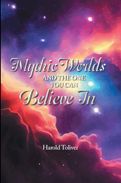
 |
In Toliver’s work, the role of myths and the devastating influence they can have on human history are integral. Throughout this comprehensively researched piece, the author focuses on debunking misconceptions throughout world history. In the process, contending schools of thought, from philosophical to literary traditions, come together to help audiences better understand historical events and, at their core, human behavior.
With the many themes that run concurrently throughout the work, the author adds layer upon layer of deeply thought-provoking content that covers the gamut of our existence. While dissecting the reality versus illusion enigma that hovers around perennially, Toliver cites one major example to establish how the two are juxtaposed together. Specifically, he suggests, it is the idea of talking about a historical concept or event with a well-defined, decisive beginning, middle, and end. Simply put, the course of natural history cannot be confined within the traditional scope of logical progression in ways that a novel or film can with their concrete three-act structures. In a nutshell, past, present, and future are all intertwined and contingent on each other in the context of the space-time continuum.
Though the work is undoubtedly full of complexities and written as such, the most avid mythology enthusiasts and deep thinkers will mull over the content numerous times to recognize the hidden gems within. For instance, in connecting the idea of illusions to the processing of the human mind and the stimuli it is receiving, Toliver seeks to reclassify ego-centered myths and transports audiences to ancient times to do so. What’s more interesting is that despite discussing intricate topics, Toliver is able to uphold a conversational tone that keeps audiences engaged. Interestingly, for a book centered around mythic understanding, the author has been masterful in weaving in nearly all aspects of life. Indeed, the interplay between mathematics and algorithms, the stages of grammatical construction and symbol usage in the English language, social and economic changes, and religion, among others, are all studied closely and referenced consistently throughout his work. In other words, Toliver delivers both a big and small-picture perspective of the functioning of the universe while adhering to his main premise of the influence of myths on vulnerable human societies.
In this work, Toliver is very much the Renaissance man, and his unique vision for the text allows his readership to delve into understanding Darwin and evolution while simultaneously taking in the origin stories of mythology, including the ubiquitous Paradise Lost by Milton. Digging deeper, Toliver even manages to segue into archaeology to show how “social phenomena are treated as phases in human development.” True to his comprehensive tendencies, the author then dives headfirst into the various mythologies ranging from Egyptian mythology and the struggle of morals to Ashshur and Assyrian mythology and everything in between. He leaves no stone unturned in giving the most complete picture of the role of mythology and the misconceptions it can create, but perhaps none are as well demonstrated as those on the topic of war and terrorism, which lead to a survey of contemporary times, and unpack the terrorist attacks of September 11th and the underlying themes therein. From the mythology of biblical times to that of Commonwealth England and the Puritans, Toliver’s work is the epitome of exemplary research and precise delivery, a work that can strike a chord with scholars worldwide.
RECOMMENDED by the US Review